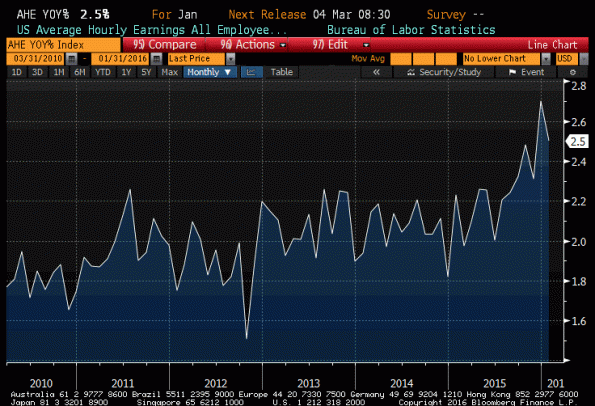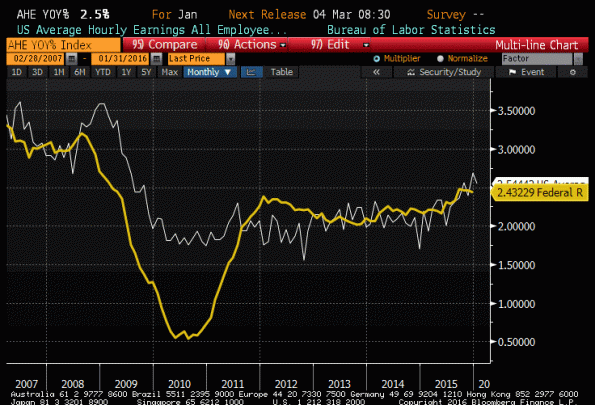Today’s news was the Employment number. I am not going to talk a lot about the number, since the January jobs number is one of those releases where the seasonal adjustments totally swamp the actual data, and so it has even wider-than-normal error bars. I will discuss error bars more in a moment, but first here is something I do want to point out about the Employment figure. Average Hourly Earnings are now clearly rising. The latest year-on-year number was 2.5%, well above consensus estimates, and last month’s release was revised to 2.7%. So now, the chart of wage growth looks like this.

Of course, I always point out that wages follow inflation, rather than leading it, but since so many people obsess about the wrong inflation metric this may not be readily apparent. But here is Average Hourly Earnings, y/y, versus Median CPI. I have shown this chart before.

The salient point is that whether you are looking at core CPI or PCE or Median CPI, and whether you think wages lead prices or follow prices, this number significantly increases the odds that the Fed raises rates again. Yes, there are lots of reasons the Fed’s intended multi-year tightening campaign is unlikely to unfold, and I am one of those who think that they may already be regretting the first one. But a number like this will tend to convince the hawks among them otherwise.
Speaking of the Fed, last night I attended a speech by Cleveland Fed President Loretta Mester, sponsored by Market News International. Every time I hear a Fed speaker speak, afterwards I want to put my head into a vise to squeeze all of the nonsense out – and last night was no different. Now, Dr. Mester is a classically-trained, highly-accomplished economist with a Ph.D. from Princeton, but I don’t hold that against her. Indeed, credit where credit is due: unlike many such speakers I have heard in the past, Dr. Mester seemed to put more error bars around some of her answers and, in one of the best exchanges, she observed that we won’t really know whether the QE tool is worth keeping in the toolkit until after monetary conditions have returned to normal. That’s unusual; most Fed speakers have long been declaring victory. She is certainly a fan and an advocate of QE, but at least recognizes that the chapter on QE cannot yet be written (although I make what I think is a fair attempt at such a chapter in my book, due out in a month or so).















No Comments